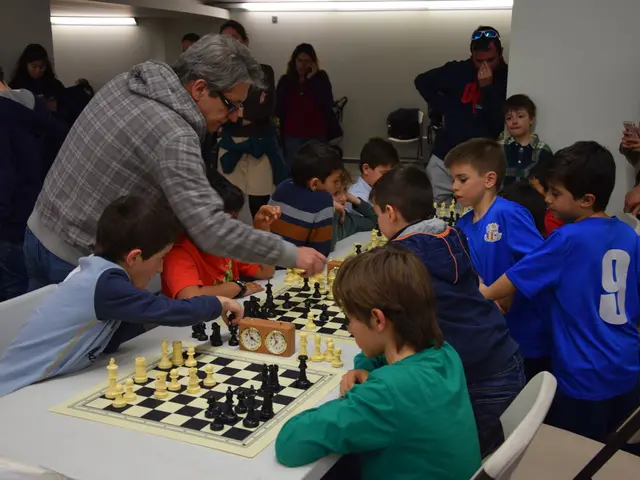Salience unveiled: Unabashedly proclaiming untruthfulness.
In the world of poker, the stakes can be high, and for some, the allure of the game can lead to addiction. This is a phenomenon that affects both men and women, but recent studies suggest that women may face unique challenges and exhibit distinct patterns when it comes to gambling addiction.
In a poignant story from Kazakhstan, a man refused to go easy on his wife, even if it meant taking her last penny. The wife, driven by a relentless determination to win, had begged not to be left when others wanted to sleep after a day-long poker session. Her poker addiction had transformed her into a tough and competitive player, no longer taking it easy on her husband. Even when exhausted, she would play until midnight, often asking a male neighbour not to bluff during a game.
This behaviour is not uncommon among female poker players. Historically, women are genetically predisposed to be conservative, making them ill-suited for the constant swings of poker. However, many women play for reasons beyond simple enjoyment of the game. Valeria, a poker player, has encountered various reasons why women play, including seeking adrenaline, personal life issues, unhealthy ambitions, feminist sentiments, or a simple love for the game.
Women in poker face barriers such as balancing family responsibilities and lower participation rates in high-stakes events. These factors can influence how addiction manifests, possibly leading to more frequent play in lower stakes or online formats rather than large live tournaments.
The problem gambling prevalence among poker players is notably high, but specific statistics differentiating female poker players with addiction issues are scarce. However, female growth in online gambling is accelerating, and platforms are tailoring games to female preferences to encourage engagement, which may influence gambling behaviours and addictive risks uniquely for women.
One such story is shared by Valeria "vk_pokerstar", who regrets introducing poker to two friends. Their addiction ruined their mental state, friendship, and led one of them to lose money for her mother's brain tumour treatment. The friends played terribly and lost significant amounts of money, considering the sums they usually handle in their daily lives.
In another instance, a woman meticulously counted every chip she won and left immediately without giving others a chance to win it back. She ignored a heated argument and fight around her on a yacht, fully focused on her game. Valeria believes that women and poker are generally incompatible, citing emotional responses and conservatism as reasons.
However, it's essential to remember that while female poker players share some common addiction risk factors related to the nature of poker and gambling environments, gender-specific social and psychological factors may shape distinct addiction experiences for women. Detailed empirical research directly linking these elements in female poker players remains limited.
In conclusion, the world of poker presents unique challenges for women, and addiction among female players may manifest differently due to these challenges. As the online gambling landscape evolves, it's crucial to understand these differences to support those struggling with addiction and promote responsible gambling practices.
What about the unique challenges women face in the casino-and-gambling world, particularly in casino-games like poker, where addiction can greatly impact their lives? Some schools of thought suggest that women's participation in high-stakes events might be lower due to family responsibilities and other factors, which could influence the manifestation of gambling addiction for women rather than leading to more frequent play in large live tournaments.






